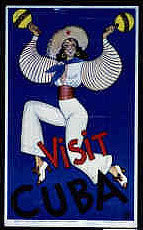Interviews Document Long but Largely Ignored anti-Castro Guerrilla War from 1959 to 1966
The Hoover Archives now has more than five dozen audiocassettes of interviews conducted in 2003-4 with Escambray war survivors by Paris-based sociologist Elizabeth Burgos, herself a Castroite activist during the 1960s. The interviews were mostly with guerrillas and long-held prisoners, or “Plantados,” the immovable ones who refused to cooperate with prison authorities and were often held many years longer than their already long prison terms.












